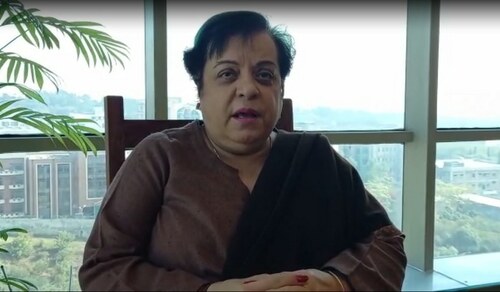• Policy looks to counter extremist tendencies through seminaries, public and private schools
• Regulate places of worship, prevent abuse of pulpit by religious leaders
• Seeks passage of uniform CVE law, on the pattern of Anti-Terrorism Act 1997
LAHORE: A new policy aimed at countering rising extremist tendencies in society seeks, among other issues, to keep a check on law enforcement officials and weed out any problematic elements from within their ranks.
Following the launch of the National Security Policy (NSP), which places an emphasis on tangible actions, the federal government has approved another national-level policy that is more geared towards ‘winning hearts and minds’.
The new National Counter Violent Extremism (NCVE) Policy 2021, seen by Dawn, was finalised following consultations with federal and provincial authorities, law enforcement, lawyers and minority representatives, sources said.
Insiders say the federal government has dispatched the latest draft of the proposed NCVE policy to the provinces before submitting it to the PM Secretariat for final approval.
According to officials privy to the affairs of the Interior Ministry and the National Counter Terrorism Authority (Nacta) — the agency responsible for putting the document together — the NCVE policy was framed in accordance with the dictates of the revised National Action Plan (NAP), developed in August last year.
First issued in the wake of the terrorist attack on the Army Public School in Peshawar, point 13 of the revised NAP calls on the government to work on the “institutionalisation & implementation of counter violent extremism (CVE) policy”.
Sources said this was the first significant task accomplished by the ‘dysfunctional civilian body’ over the last four years or so.
The issue of violent extremism took centre stage following the recent lynching of a Sri Lankan national in Sialkot, and in the wake of the violent sit-ins by the Tehreek-i-Labbaik Pakistan (TLP), which also claimed the lives of at least nine police officers.
Despite such brazen acts, all cases against the TLP leadership and workers were quashed as part of a deal with the government. Although details of the agreement were never made public, ministers had promised the government was working on a policy to curb such incidents.
Consultative process
Describing the consultative process undertaken, the official said the NCVE policy was prepared by Nacta’s monitoring and capacity-building branch and more than 250 experts from all walks of life were consulted in the process.
Observers say this is what sets this policy apart from the recently unveiled NSP, which has been criticised by the opposition for being developed in secret and not being shared with political stakeholders.
“Unlike the NSP, the NCVE policy clearly spells out roles, activities and even key performance indicators for each activity,” the official told Dawn.
Key features
Five key objectives and as many target areas have been mentioned in the policy proposed by the federal government.
The draft suggests that the NCVE policy focuses on coordination at the federal level by various lead divisions with all the provinces and law enforcement agencies.
It also proposes that the learning environment in all the public and private sector institutions of the country must be revisited to counter violent extremism as a part of the wider counter-terrorism strategy framework for Pakistan.
“The NCVE policy’s aim is to strengthen the capacities of national education systems (e.g. education syllabi, curricula and teachers) to contribute to the prevention of violent extremism,” the policy document states.
It says that traces of extremism are not confined to a single education system and active action against extremism should be part and parcel of all learning institutions, including seminaries, public and private institutions, secondary schools, colleges and institutes of higher learning.
The policy stresses the need to regulate mosques and prevent the abuse of the pulpit by imams, priests, zakirs and gurus etc, adding that “the messages delivered by these religious leaders should be based upon positivity and purged of all political, sectarian, and violent extremism content”.
It further proposes that places of worship shall be regulated by the local administration through a legislative framework.
The NCVE policy highlights the need for a uniform CVE law — on the pattern of the Anti-Terrorism Act (ATA) 1997 — where multiple laws and jurisdictional issues will be resolved.
It also stresses the establishment of the CVE units in the hitherto ignored Special Branch and gives prosecutorial responsibility to Counter Terrorism Departments (CTDs) to maintain checks and balances within police ranks.
Published in Dawn, January 22nd, 2022












































